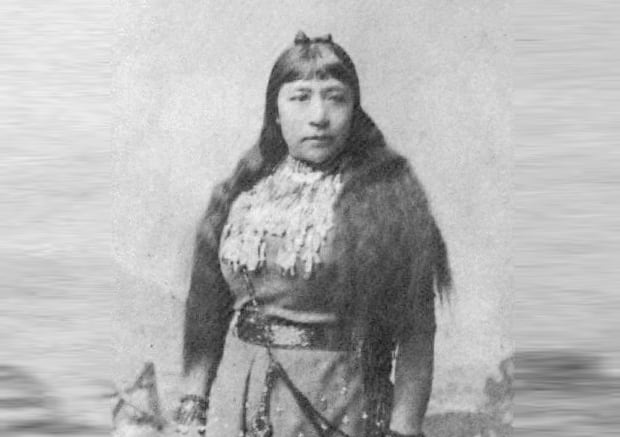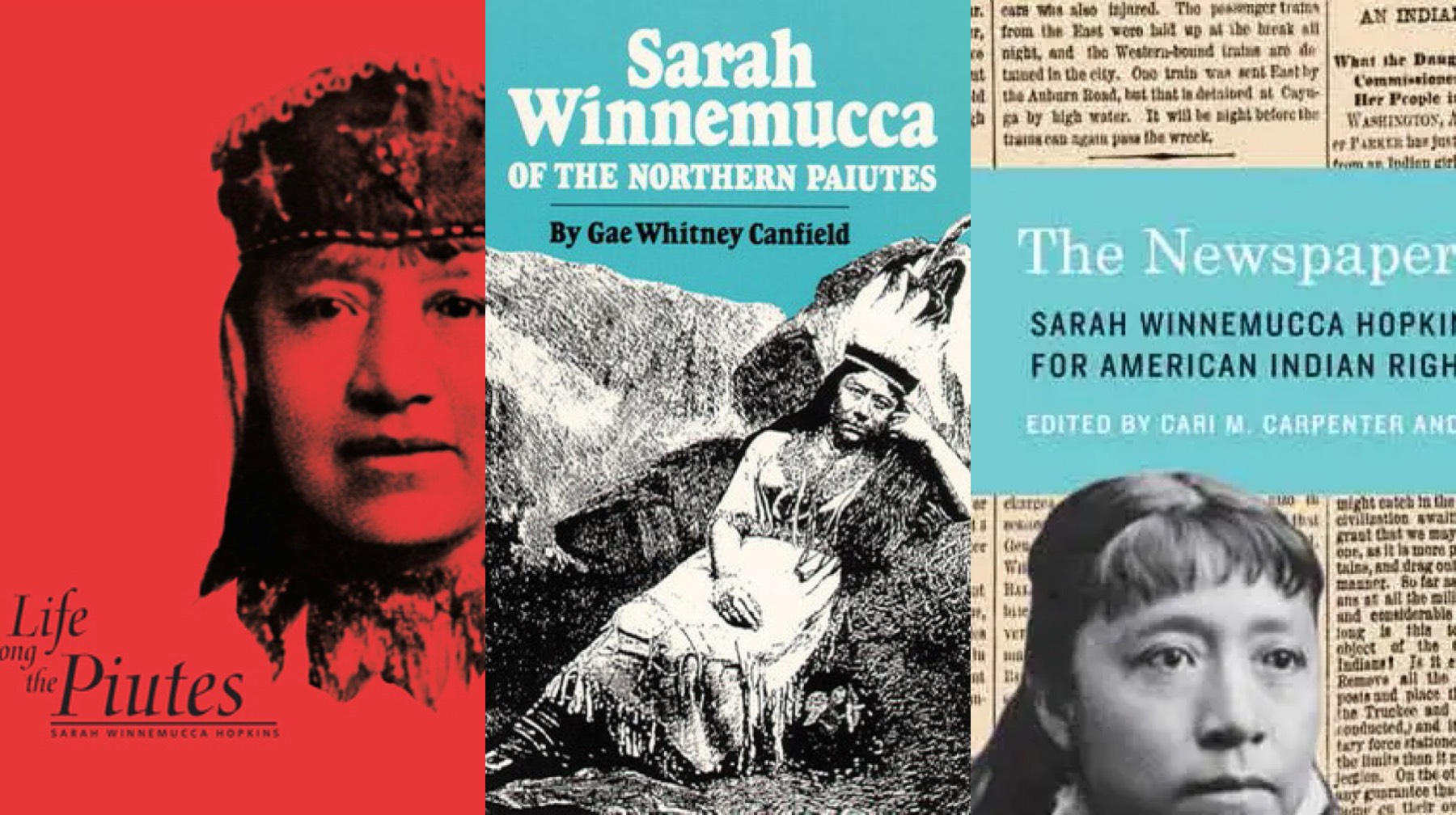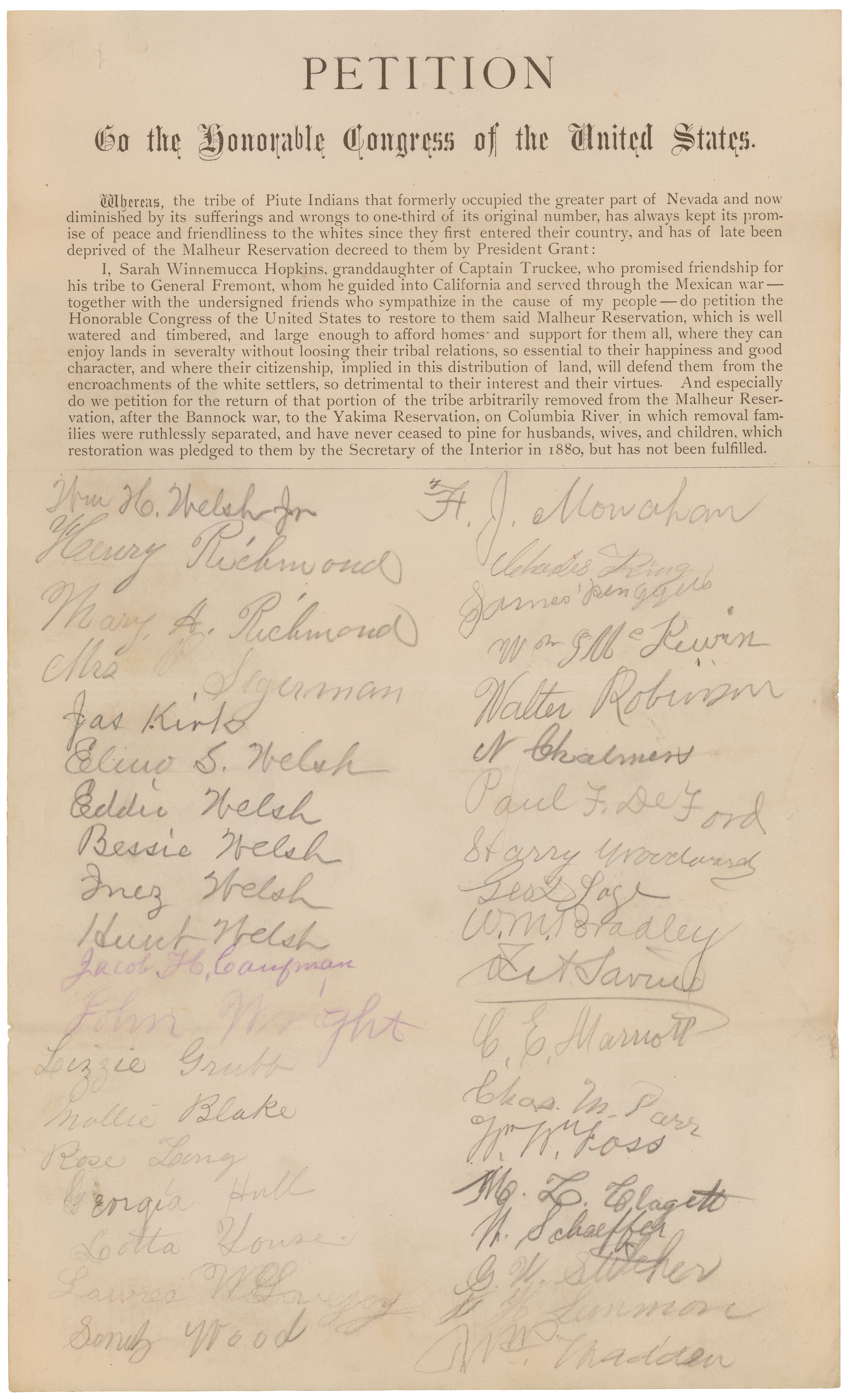
Biography
Sarah Winnemucca Hopkins was born around the year 1844 in Humboldt River, Nevada. Here the Northern Paiute natives, commonly known as desert-plateau people, raised her as the product of two past generations of chief leadership. Her extensive family would heavily participate in tribal customs such as council meetings, wedding ceremonies, and the sacred Festival of Flowers. As an accomplished interpreter, Sarah Winnemucca acted as the main mediator between her people and the government of the United States. Many of her people were never taught English, so her ability to communicate effectively with the powers from Washington helped to navigate the Paiutes through the dangers of colonization. She is one of the first native writers ever to emerge in the late 19th century with her breakout autobiography Life Among the Paiutes. After the autobiography was produced, Winnemucca would begin giving lectures across Nevada, Virginia, California, Maryland, and Massachusetts to expose how her people had been wronged by those previously described as “kind, hardworking, and industrious.”

Notable Writings by and about Sarah Winnemucca Hopkins
- Life Among the Paiutes by Sarah Winnemucca Hopkins, 1883
- Sarah Winnemucca of the Northern Paiutes by Gae Whitney Canfield, 1983
- The Newspaper Warrior: Sarah Winnemucca Hopkins’s Campaign for American Indian Rights by Sarah Winnemucca Hopkins, edited by Cari M. Carpenter and Carolyn Sorisio, 1864-1891
Life Among the Paiutes
Published in 1883, Life Among the Paiutes follows Sarah Winnemucca and her tribe as they face the mass emigration of white settlers to their land. Her grandfather, Captain Truckee, viewed white settlers as their long-lost brothers. Her father however, knew of what they had done to other tribes across the countryside; they burned supplies and murdered natives indiscriminately. After a dream, Winnemucca’s father warned of death and despair to come through mingling with the “white brothers.” This is the beginning of Sarah Winnemucca’s story where she remembers and details being the voice of the Paiute people. She recounts the abuse, wars, corruption, and general struggle with the interests of settlers who cared little for the Paiute people. She writes about the degradation of her culture, the traditional tribal practices becoming reconstructed to fit the production needs of the United States government, and how her people received next to nothing for their hard labor.
She also dedicated a chapter of her novel to the unjust removal of her people to the Yakima Reservation from the Malheur Reservation originally allotted to them. Families were separated including children from their parents and partners from their significant others during this process. According to Army records, a couple of adults and children froze to death during the trek because of the harsh weather conditions. They were forced to march to a military fort near the Yakima Reservation on foot in the winter cold, and even after arriving more natives froze in the sheds given to them as housing. Winnemucca would soon go on to request the returning of her people to the Malheur Reservation, writing letters and eventually being granted permission to collect Paiutes still held at the Yakima Reservation. Despite this, an agent of the reservation by the name James H. Wilbur, denied her permission to bring her people back to Malheur and she never received closure for this blatant overreach of power.
Worth Recovery
Sarah Winnemucca’s work is an ethnographic text worth recovery because it incorporates a deep Native sense of cultural awareness mixed with the pressures and dangers of assimilating to a more Christianized society. Life Among the Paiutes has been criticized by scholars who believe Winnemucca’s attempts to assimilate were at the detriment of her people’s interests. Viewing the text with this perspective ignores the fact that Winnemucca had to find a way to bridge the gap between two completely different cultures to voice concerns for the future of the Paiutes. She was able to release one of the first ever written Native texts in history during a time of great racism, sexism, and conquest. Her stories reveal the process of her land and people systematically becoming property of the United States government. Her bravery for speaking out about the wrongs done by specific white settlers and government agents also proves she was not afraid to defend the honor of her tribe, even if it meant facing the possibility of violent action. Sarah Winnemucca’s Life Among the Paiutes holds an extremely valuable historical voice that should continue to be recovered along with other Native American texts.
Pictured here is a petition written by Sarah Winnemucca in collaboration with others who seek reform for the Paiute people. This petition mainly acted to transfer her people back to the Malheur Reservation so they could live together again.

Cited Sources
Winnemucca, Sarah, and Hopkins, Sarah Winnemucca. Life Among the Piutes: Their Wrongs and Claims. University of Nevada Press, 1994.
Canfield, Gae Whitney. Sarah Winnemucca of the Northern Paiutes. University of Oklahoma Press, 1983.
Winnemucca, Sarah, and Hopkins, Sarah Winnemucca. The Newspaper Warrior: Sarah Winnemucca Hopkins’s Campaign for American Indian Rights, 1864-1891. United Kingdom, Nebraska, 2015.
Winnemucca, Sarah. Life Among the Paiutes. Edited by Horace Mann, Arcadia Press, 2017.
History, Art & Archives, U.S. House of Representatives, “Sarah Winnemucca Hopkins Petition,” https://history.house.gov/Records-and-Research/Listing/pm_013/ (December 07, 2022)
